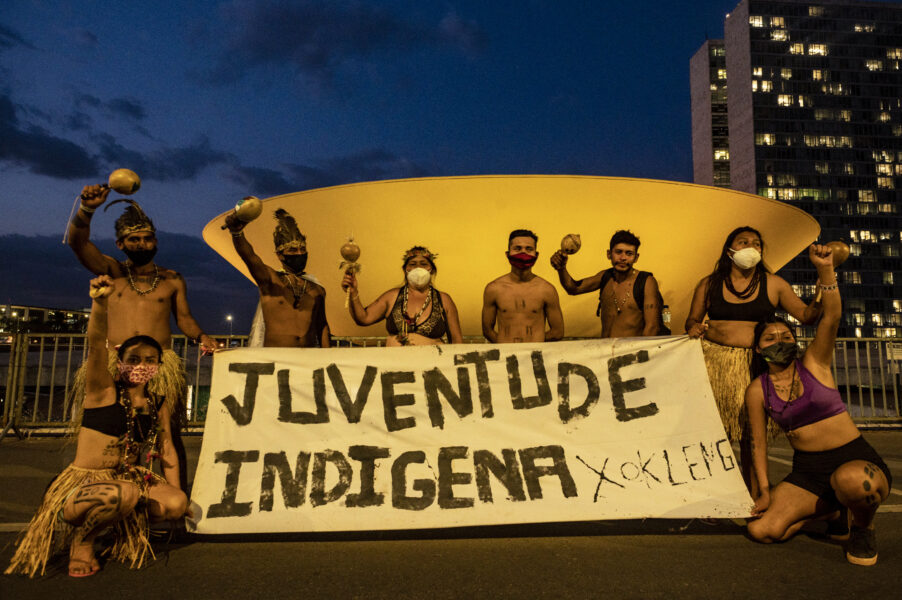
In a landmark ruling on the 21st September, the Brazilian Supreme Court (BSC) voted nine to two to reject restrictions on Xokleng’s claims to ancestral lands. They ruled that claims to land would now be upheld by the essential element of how Indigenous people occupy and base their livelihood on the land.
The case brought before the BSC originated over 10 years ago, in 2009, when the Xokleng, a Brazilian Indigenous community, were evicted by the Santa Catarina Environmental Institute, from areas that were a part of a nature reserve. The Xokleng, assisted by Brazil’s Indigenous affairs agency, Funai, appealed the decision in 2013.
However, the conflict over the Xokleng land has longer historical links. In violent land clearances of the late 19th and early 20th centuries, the Xokleng were victimised, subject to land and human brutality. White settler mercenaries would hunt the Xokleng, and be paid based on the ears they had retrieved from those they killed. In 1914, the Indian Protection Service (which became Funai) established protected land for the Xokleng, yet, over time, this was eroded by agricultural and state encroachment.
In violent land clearances of the late 19th and early 20th centuries, the Xokleng were victimised, subject to land and human brutality
The 2013 appeal was rejected by the Santa Catarina state authorities on the grounds of ‘marco temporal’, Portuguese for time-frame. First used in 2009, ‘marco temporal’ was advocated by agricultural and tobacco lobbyists to prevent Indigenous communities from claims to land they did not occupy on the 5th October 1988; when Brazil’s federal constitution came into force. The Xokleng’s eviction was upheld on these grounds, with the court ruling that they had no rights to the land as they were not occupying it in 1988.
Indigenous activists contested ‘marco temporal’, as this fails to account for the forcible removal many Indigenous groups faced due to colonisation. For the Xokleng, German settlers had forced the community away from these contested lands. With this argument, they took their appeal all the way to the BSC. Nine of the eleven BSC justices ruled in favour of the Xokleng’s argument, recognising that Indigenous communities that did not live on lands in 1988 were likely expelled, meaning this time limit argument cannot be a legal defence. The lands were restored to the Xokleng.
Indigenous activists contested ‘marco temporal’, as this fails to account for the forcible removal many Indigenous groups faced due to colonisation
The ruling is not only a victory for the Xokleng, but advances rights for all Indigenous communities in Brazil, as in 2019, the BSC ruled that this case would set a precedent. Subsequently, all land disputes that used the ‘marco temporal’ ruling can be challenged. Survival International Advocacy Director, Fiona Watson, stated “This is a momentous, historic victory for Brazil’s Indigenous peoples, and a massive defeat for the agribusiness lobby.” Indigenous leaders estimate that there are around 300-400 land claims that could be challenged as a result of the BSC ruling.
The decision will also provide Brazilian President, Luiz Igancio Lula da Silva, grounds to veto a bill being rushed through Congress by the agribusiness caucus to entrench ‘marco temporal’ in law. However, the agribusiness lobbyists and caucus have condemned this ruling, claiming that they will endeavour to pass the bill through the Senate, and appeal to the judiciary for compensation for requisitioned farmland. Though Brazilian Indigenous communities widely celebrated the decision and protection of their lands, they remain cautious of potential conflicts from non-Indigenous people. It remains to be seen whether this ruling will effectively protect Indigenous lands and livelihoods.


